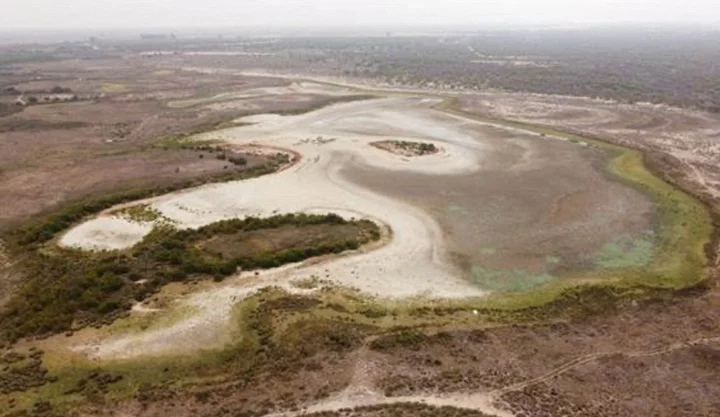MADRID The largest permanent lagoon in southern Spain's Donana national park has completely dried out for the second summer in a row due to a prolonged drought and the overexploitation of aquifers, the Spanish National Research Council (CSIC) said on Thursday.
The drying out of the lagoon comes as Spain grapples with the third heatwave of the summer, while emptying reservoirs have forced water restrictions in parts of the country.
"Since we began collecting data on the area half a century ago, this has never happened in two consecutive years, which shows the seriousness of the situation facing the Donana lagoon system and, with it, all the biodiversity that depends on it," the CSIC said in a statement.
The Donana wetlands harbour many endemic and threatened species, such as freshwater eels and turtles.
Most lagoons in Donana are temporary, meaning their basins fill when flooded by rainwater from aquifers in the winter and then dry out in the hotter months. But a few also contain water during the summer, providing an important refuge for migratory birds heading southward after breeding in northern Europe.
According to the researchers, Donana has seen in the past two years the lowest precipitation levels in a decade and the highest average annual temperature ever recorded, at 18.53 Celsius (65.35 Fahrenheit).
Donana's lagoons are not only threatened by the drought and heat. They are also surrounded by a sea of greenhouses and a complex system of pipes that take water from illegally drilled wells for use by farmers growing red berries.
Andalusia's conservative regional government plans an amnesty that would legalise additional irrigation around Donana, prompting an outcry from environmentalists.
(Reporting by David Latona; Editing by Andrei Khalip, Alexandra Hudson)









